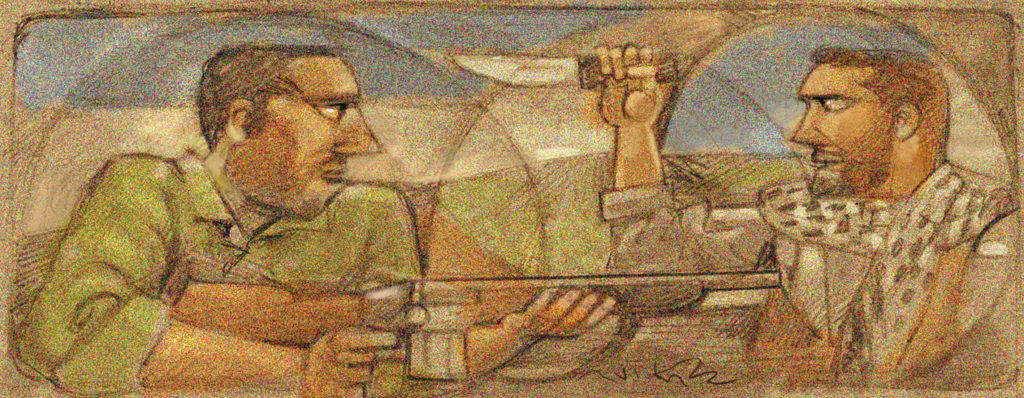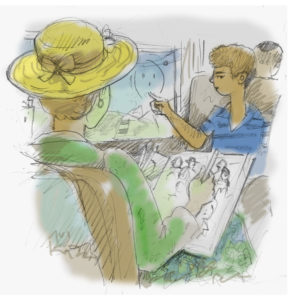Haim Watzman
We circle, weapons drawn, two as one, ready to kill.
I raped the boy in April 1948, in a dark corner in the garden of a villa in Talbieh. A few minutes before he had leapt out from between some bushes, a butcher’s knife flashing. Boaz, a pace away from me, had his eye on the balcony above, fearing a sniper, so he never saw the kid who brought the knife down between his shoulder blades, with a shout of Allah akbar!, or perhaps it was something else. The stars were just coming out, but I saw my friend murdered. I saw the blood spurt from his back and chest as he crumpled.

To this day I wonder how, in the heat of battle, I could have been able to grasp that I was gazing at a face of godlike beauty. I had always assumed beforehand—and, indeed, all my experience since then has confirmed—that when your life is on the line, when you stand on the precipice between life and death, the mind focuses only on keeping you alive. Your eye takes in every detail of the terrain, every clue to where your enemy lies, but nothing of the harmony of the shape of the landscape. Color may be a sign of danger but never moves the heart. Yet, at this instant of vengeance I was nearly unnerved by the splendor that I saw.
Six Day War
The Plowman Meets the Reaper — “Necessary Stories” from The Jerusalem Report
Haim Watzman, seen on CAHI.org

Behold, days are coming, says the Lord, when the plowman shall overtake the reaper, and the treader of grapes him who sows seed … And I will bring back the captivity of my people of Israel, and they shall build the waste cities, and inhabit them; they shall also make gardens, and eat their fruit. (Amos 9:13–14)
He knew her, she lived past the sands, in the part of Rassco where you heard German and the Philharmonic when the windows were open. He sometimes went to play soccer on the street there when he needed to get away from home. Her house, one of the tiny two-room cubicles that made up the neighborhood, had a small garden that looked as if she went out every morning to straighten and polish each leaf and petal. He’d often see her sitting on her front stoop with one or another lady friend, both in high heels, in long sleeves even on the hottest days of the summer. Sometimes she would have brushes in hand and an easel in front of her, painting scenes of a city that looked nothing like Holon.
Once he passed by and she wasn’t outside and he felt so disappointed that he threw a stone at her window and then hid to see if she would come out. When she did, a frown on her face, he felt so ashamed of himself that he avoided passing her house for the next month.
She had been on the early train to Jerusalem and here she was again, a straw hat with a flower over her bobbed blonde hair. The train was crowded and hot but he’d manage to squeeze through to get a window seat. She was already on the aisle. In the morning she had sat down right next to him, fanning herself with a twice-folded copy of Ha’aretz. When she looked at him he was afraid she knew that he had thrown the stone, but she just smiled and asked his name and age in a throaty Ashkenazi kind of voice and then said that her name was Alma and that it was very brave for a boy of eleven to take the train to Jerusalem by himself and was someone meeting him at the station in Jerusalem. He told her that his name was Amos and that his father had sent him to bring his mother home before the war began.





